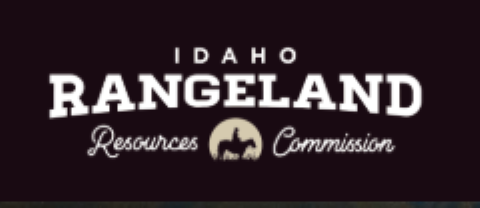
A State Run Collaborative
By Karen Schumacher
The Idaho Rangeland Resources Commission (IRRC) was created by the Idaho legislature in 1994 (Title 58 Chapter 14), comprised of five Governor appointed voting members that includes Royce Schwenkfelder, Ross Goddard, Darcy Helmick, Todd Holbrook, and John Peavey who come from different areas of the state. There are also “permanent” non-voting advisory members including the BLM State Director; USFS regional supervisors; U of Idaho Agriculture and Life Sciences Dean; ID Department of Lands, ID Department of Agriculture, and IDFG Directors; and the Society of Range Management President, among others. The IRRC website states “It is a state agency with an educational mission” and was created to “Foster understanding by creating collaborative partnerships to sustain healthy rangelands.”
Some of their “education” programs include how to interact with livestock when recreating through their “Care & Share” program, creating teacher resource guides and curriculum for K-12 students, creating videos that promote their purpose, and education on wildfires. However, looking at the curriculum, these programs are really promoting non-governmental organization (NGO) ideology and agendas, paid for with our state tax dollars. The IRRC website is fairly vague about its wildlife objective, other than how ranches are valuable for wildlife habitat, but there is a link to The Nature Conservancy (TNC) for more information.
IRRC Executive Director, Gretchen Hyde, is Vice Chairman on the Idaho Rangeland Conservation Partnership (IRCP) Steering Committee, along with federal and state agencies, and TNC. Seeing development as one of the “threats”, IRCP acts “as a statewide network to support locally lead collaboratives” that “conserve and enhance the social, ecological, and economic values of rangelands”. Their work is a “landscape scale” endeavor, meaning no recognition of jurisdictional boundaries, to develop management plans for outcome-based land management. The IRCP has also held workshops with the USDA Working Lands for Wildlife that “systematically” targets conservation efforts on working landscapes. IRCP Coordinator, Brenda Richards, even gets together with land trusts to support “voluntary land conservation”.
Ms. Hyde also serves as secretary on the Idaho Environmental Forum (IEF), an organization that includes the Idaho Conservation League (ICL), Governor’s Office of Species Conservation (OSC), and USFS. In October, 2019, the IEF welcomed the new Idaho NGO heads as guest speakers from the ICL, TNC, and Idaho Rivers United. OSC Director, Scott Pugrud, was the forum chair and moderator. In March, 2019, IDFG Wildlife Program Coordinator Gregg Servheen, spoke on the importance of wildlife migration for connectivity and highway crossing technology, a very heavily promoted NGO objective for connectivity using wildlife overpasses. The Wild & Scenic Rivers Act in Idaho was celebrated by IEF in November, 2018. There was also a discussion on “Planned Communities: A Tool to Control Sprawl, or Encourage It” held in April, 2018. Back in September, 2017, a forum was held on the Politics of Protected Areas: National Parks, Monuments, and Wilderness, with ICL director Rick Johnson. While the IEF claims it takes “no positions” or advocates “no causes” it seems their activity is heavily influenced by NGO objectives and involvement, and they do track legislative activity. How much of this ideology does Ms. Hyde bring back to the IRRC?
Historically, ranchers have been the most responsible in protecting the land. NGOs want to change that into their notion of how the land should be managed which is conserving it. There could be nothing more devastating than not working or using the land, that is what destroys it. Participation in this agenda will only worsen the condition of land, just as the forests are being destroyed by non-use.
The IRRC is not a working land owner collaborative. It is a state created organization for the purposes of embedding NGO objectives, through educational programs that mislead children, and involvement in other well-hidden activities, that includes the federal government. These collaboratives all need to get out of our lives and citizens need to take back the management of our land within our jurisdictional boundaries. Ranchers to not need to change how they care for the land into a conservation zoo. No more “cooperative, consensus, collaboration” activity spearheaded by NGOs with federal and state agencies that exclude or allow only minimal local citizen representation.